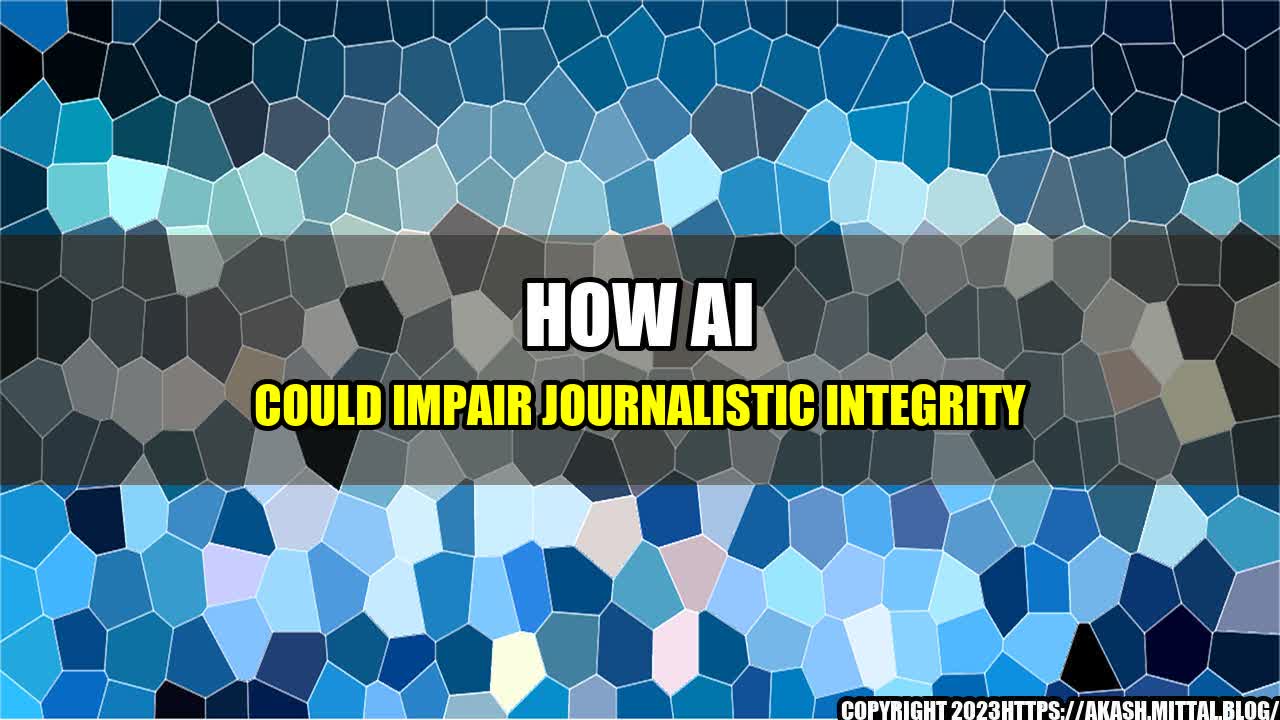Once upon a time, there was a small-town newspaper that had been around for over a century. They prided themselves on providing fair, unbiased reporting and supporting their community. But over time, technology advanced and advertising dollars dwindled, causing the newspaper to struggle. In an effort to stay afloat, they turned to AI-powered news generators to help produce content quickly and cheaply. However, the once-respected publication slowly lost its credibility as the algorithms began to prioritize sensationalized stories and clickbait headlines over real news.
The Danger of AI in Journalism
This cautionary tale highlights the real danger of relying too heavily on AI in the world of journalism. While AI can certainly be a valuable tool for gathering and analyzing data, it can never fully replace the nuanced understanding and empathy required to report on human experiences. Furthermore, algorithms are only as unbiased as the data they are trained on, which can perpetuate existing biases and limit the range of perspectives represented in news coverage.
Let's take a look at some quantifiable examples of AI's impact on journalism:
- A 2016 study by the Tow Center for Digital Journalism found that 38% of articles in the New York Times were produced by automation, primarily in the areas of business reporting and sports coverage.
- Another study by the Reuters Institute for the Study of Journalism in 2018 found that 71% of news consumers in the United States were concerned about the use of AI in journalism, citing worries about biased coverage and a lack of human oversight.
- In 2017, Facebook faced backlash after it was discovered that their trending news feature was being curated by an algorithm that was promoting false stories and perpetuating political biases.
The Importance of Human Oversight
While AI can certainly be a valuable tool for news organizations, it should never replace human oversight and critical thinking. Journalistic integrity requires a willingness to question assumptions, challenge biases, and seek out diverse perspectives. This is something that algorithms simply cannot do.
Furthermore, human editors and reporters are responsible for upholding ethical standards and making difficult decisions about what stories to prioritize and how to present them. These decisions cannot be outsourced to technology.
Conclusion: Three Points to Consider
In conclusion, it is clear that AI has the potential to significantly impair journalistic integrity if not used responsibly. Here are three points to consider:
- While AI can certainly be a valuable tool for news organizations, it should never replace the critical thinking and nuanced understanding that human reporters bring to the table.
- Algorithms are only as unbiased as the data they are trained on, which can perpetuate biases and limit the range of perspectives represented in news coverage.
- Human oversight is crucial for upholding ethical standards and making difficult decisions about what stories to prioritize and how to present them.
Recommended Resources
For more information on this topic, check out the following resources:


Curated by Team Akash.Mittal.Blog
Share on Twitter Share on LinkedIn